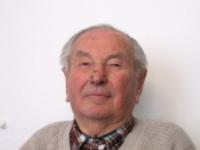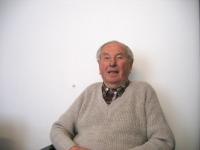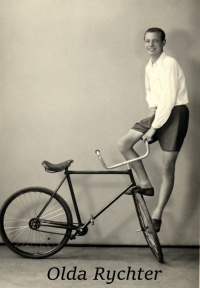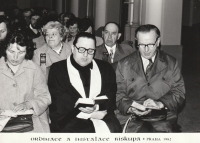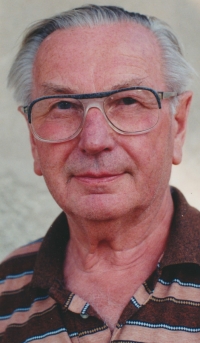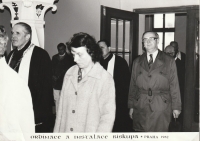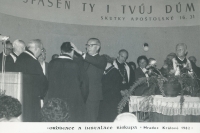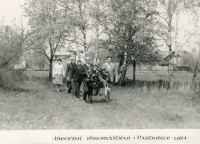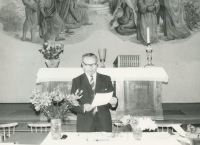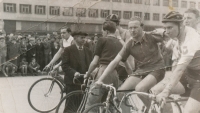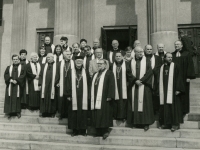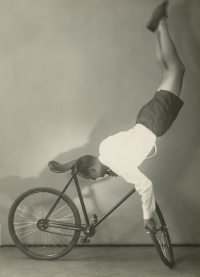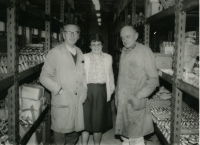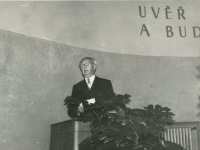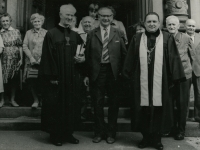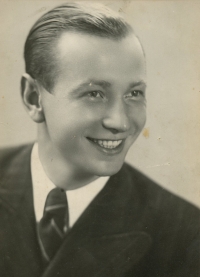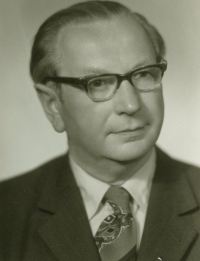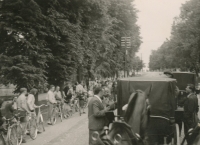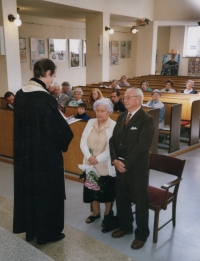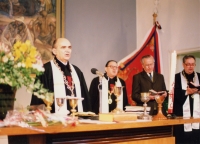“God loved me.”
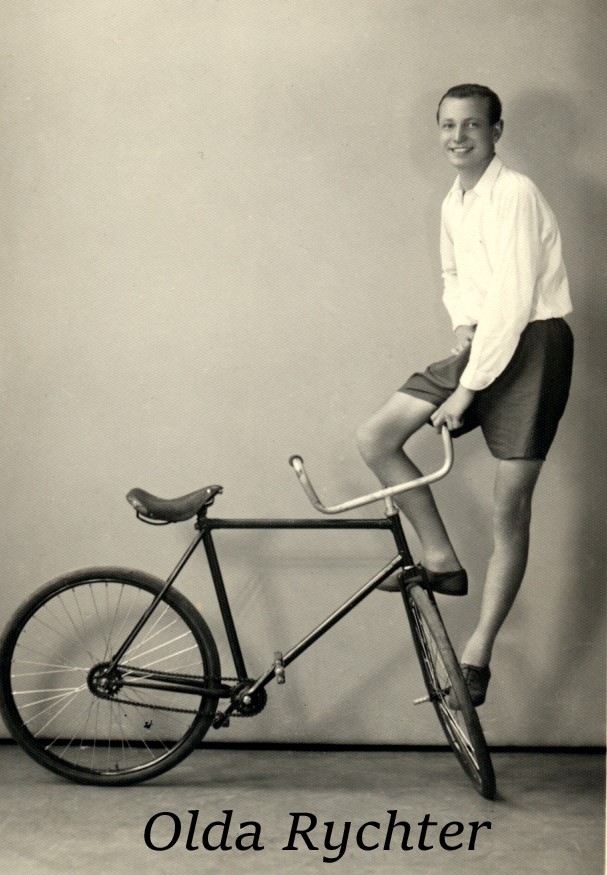
Download image
Oldřich Richter was born in the east Bohemian town of Holice on May 16th, 1921. His father Karel Richter owned a garage and a gasoline pump shop, his mother Anna Richterová, born Rašínová, came from a family of a little-known Czech writer who was related to the First Republic minister of finance Alois Rašín. Oldřich’s grand-father and Alois Rašín were cousins. His father Karel was a great sport enthusiast and as early as 1908 he participated in motorcycle races. Oldřich Richter attended the elementary, and then the follow-up school in Holice. Here he learned the mechanic’s and trader’s professions. During the war he further studied in several courses, and he became an expert in the field of bicycles. From his childhood he walked in the footsteps of his father and practiced many sports, especially cycling and ´figure cycling.´ He practiced this unusual discipline during the war as well, and he performed in numerous shows of their figure cycling team, which helped him avoid membership in the activist group ´Kuratorium for the education of youth.´ He was also active as a teacher of figure cycling. With the looming threat of the war in 1938 he applied for the call of a Thousand New Pilots for the Republic, and wanted to follow his brother who was a pilot. He passed the tests, but after the occupation was not called in duty. He thus worked in his father’s shop in Holice, where repairs of German military vehicles were being made. Sometimes they would find a forgotten firearm or ammunition in the vehicles brought for repair, which the father with his sons would then carefully clean and hide inside a case in the shop, where it stayed till the time of uprising. The uprising in Holice took place right on the 5th of May 1945. Armed military trains were waiting on nearby railways in the region, and therefore the partisans and participants of the uprising got hold of a substantial amount of weapons and ammunition. They even obtained a cannon, which was positioned on one of the barricades on access roads to the town. At noon, the fighting for a local shoe and textile factory began, and it lasted until the following day. The participants of the uprising blocked the roads, and by shooting at the German units, they prevented their passage through the town. During the first day of the uprising, Richter took part in the taking of a German radio transmitter, which was successfully attained without a single shot fired. With his father and brother he also took part in repairing of confiscated German military vehicles. On the second day, German airplanes appeared over Holice and began bombing the town. The bomb shells hit Richter’s house and also damaged the town hall, where the taken firearms were stored. After the bombardment, German soldiers swarmed the town. They began with house searches and arrests. Mr. Richter, with his parents, found shelter in a cellar under their workshop. This had likely saved their lives. When the soldiers ran in, the house was full of firearms and ammunition, and several military vehicles were parked in the backyard. Oldřich´s brother was however not so lucky. Together with a large number of Holice citizens he was forcibly taken to a meadow near Holice and subsequently held in a local Sokol gymnasium. After the fire ceased, from his hiding place O. R. watched the advancement of the German army and witnessed several inhabitants of Holice who were joyfully welcoming the German occupants. The Germans remained in Holice till the evening of May 8th. The Richter family including O.R.´s brother have all survived. After the war O.R. began working in the car workshop, which his father transferred onto him. After some time he came to a decision that he would let the company become nationalized by the state. He did not stay long in the newly formed Mototechna company. As he says, he was not considered a trustworthy citizen and the local State Police officers thus pressed him to agree to collaboration with them. When he could not longer withstand the pressure, he left Holice and moved to his parents in Hradec Králové. His family and personal life was blessed with greater happiness. In June 1945 he married Marta Schánělová. Theirs was the very first post-war wedding in the Hradec Králové Czechoslovak Hussite Church led by pastor Ambrož. The wedding celebrations were also thematically linked to cycling. For Oldřich Richter the marriage meant a turning point in his life in yet another aspect. His wife’s family was very active in the Czechoslovak Hussite Church, and he fully embraced the new status. During the following decades, he served in various functions in seniorate, in diocese councils and committees. Lastly, he worked in the church’s central council as well. Although he had not been an anti-communist activist and he had held managerial positions in the Mototechna company and the Czechoslovak Car Repair, the State Police did not forget his refusal to collaborate with them. In one of the Mototechna branches, a cash shortage was discovered and O.R. was charged as well, although he had nothing to do with this. He did not even personally work in that particular branch. The State Police then made use of his managerial position - the investigator only reminded O.R. of his past refusal to cooperate, and did not take any explanation. In the following manipulated trial, the only one who was charged and sentenced unconditionally was Oldřich. He was sentenced to one year of imprisonment, of which 8 months he served in Ostrov in the Jáchymov region. After his release from prison, he returned to his previous position of a supply manager in Czechoslovak Car Repair - ČSAO and he worked for the company both in Hradec Králové and Pardubice, where he later relocated. This was where the Warsaw Pact armies invasion found him, and he recalls the ´allied armies´ being criticized most fiercely by the Communist Party officials (he himself has never been a party member). These same officials later with the ongoing ´normalization´ turned ultra left-wing and were responsible for the near bankruptcy of the ČSAO company. During the years of normalization, he also had to endure interviews where he had to defend his activity in the church. He was eventually fired together with other managers and went to work to a newly founded car repair shop in his native Holice, where he was employed till his retirement. When retired, he still continued to work for Agrostav company in Hradec Králové till its closing-down in 1989. His life motto is: ´Never retire when you are sixty.´ He himself worked till 75, even today he tries to remain active and help others. In the last years he has also been active in lecturing - he visits schools in the Hradec Králové region and talks to students about the occupation and the uprising in Holice.
